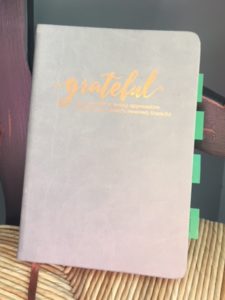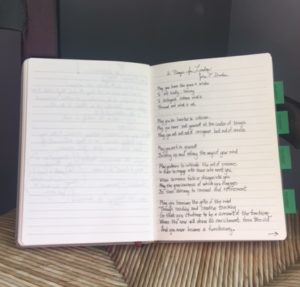- Home
- About
- Blog
- Photos
- AR Summaries
- Year 1
- AR Showcase 2024 – Cohort 11
- Communication
- Energy Enhancers
- Goal Setting
- Managing Stress and Distress
- Mapping My Day
- Meeting My Needs
- Reflection
- Time on Task
- AR Showcase 2020 – Cohort 7
- AR Showcase 2019 – Cohort 6
- AR Showcase 2018 – Cohort 5
- AR Showcase 2017 – Cohort 4
- AR Showcase 2016 – Cohort 3
- AR Showcase 2015 – Cohort 2
- Year 2
- AR Showcase of Schools 2020 – Cohort 6
- AR Showcase of Schools 2019 – Cohort 5
- AR Showcase of Schools 2018 – Cohort 4
- AR Showcase of Schools 2017 – Cohort 3
- AR Showcase of Schools Program 2017 – Cohort 3
- Building a Positive Collaborative Culture
- Creating an Instructional Model
- Implementing Character Education Behavior Programs
- Implementing Teacher Instructional Growth Goals
- Improving Communication
- Instructional Rounds/Walkthroughs
- Restructuring Meeting Time to Improve Teacher PD
- Other
- AR Showcase of Schools 2016 – Cohort 2
- Year 1
- Merchandise
- IPLI Extended
- Cohort 13 Applications
27
OCT
2017
I Don’t Have Time for One More Thing!
By Rhonda Roos, IPLI Cohort 5 Mentor and Educational Consultant
 Almost eight years ago, I experienced the most difficult time of my life. A dear and trusted friend recommended that I start journaling – just to get some thoughts and feelings out of my system. Reluctantly, I started. I purchased a small notebook with lined pages and began writing in it several times each week. Some days there would simply be a list of questions. Other days, I would scribble my dreams for the future and draw pictures. There are lots of quotes and lots of lists! I’m on my fifth journal now and am still amazed at how healing and comforting the journaling has become for me.
Almost eight years ago, I experienced the most difficult time of my life. A dear and trusted friend recommended that I start journaling – just to get some thoughts and feelings out of my system. Reluctantly, I started. I purchased a small notebook with lined pages and began writing in it several times each week. Some days there would simply be a list of questions. Other days, I would scribble my dreams for the future and draw pictures. There are lots of quotes and lots of lists! I’m on my fifth journal now and am still amazed at how healing and comforting the journaling has become for me.
So a few weeks ago, I read an article entitled “The More Senior Your Job Title, the More You Need to Keep a Journal.” (by Dan Ciampa in the Harvard Business Review, July 7, 2017) I’ve thought about the article’s points quite often and wanted to share some of these thoughts with you. As principals, you move so quickly throughout your day from one activity to the next, your time is demanded by so many people, and you are required to make multiple decisions multiple times in one day.
The French philosopher Blaise Pascal said, “All of humanity’s problems come from man’s inability to sit quietly in a room alone.” It’s so difficult to slow down the pace of your lives, but here are two reasons from the article on exactly why you should begin this journaling process:
- Taking time to learn and think translates into successes. It helps you slow down. We tend to make mistakes when things are moving too quickly. We have to be extremely careful not to do things quickly just to mark them off our list.
- There’s strong evidence that replaying events in our brain is essential to learning. When you stop and reflect upon a situation and ask yourself, “How could I have handled that better?” you could be amazed at the other options that will arise and the clarification of issues. Your problem-solving capabilities seem to become more creative.
If you decide to begin writing in a journal, you’ll certainly find your own style. A few, helpful guidelines would include writing down a record of what happened and including how you reacted emotionally. This can help you work through your feelings and prepare for an upcoming, difficult conversation you’ll be having with a staff member or department. Try to journal your thoughts on major incidents within 24-48 hours just to remember the details. And don’t be tempted to journal on your iPad or computer. You’re trying to slow down and reflect, so handwritten notes seem to work much better.
If there are so many benefits to journaling, why don’t more of us as principals do it? Probably because we think it takes too much time. It takes a few moments of quiet, and we don’t make those a priority in our lives. When we journal, we have to relive some situations that didn’t go so well, and that doesn’t feel good. But journaling will help us find fundamental solutions for many of those situations. And a final reason that we don’t journal is that principals get addicted to moving rapidly from one issue to the next. It’s almost as if we prefer the “high” of always being needed to solve things and answer questions for people. Someone once called it the HSPS – Hyperactive Superficial Principal Syndrome.
 These are extremely difficult times to be leading schools. I urge you, for your own well-being, to give this journaling a try. Find a few moments each day to sit in silence, reflect, journal a few thoughts and grow! I’ve included a photo of my current journal’s cover and a page from within where I copied a beautiful poem entitled “A Prayer for Leaders” by John O’Donohue. Maybe you could google the entire poem and read it in your next quiet reflection time.
These are extremely difficult times to be leading schools. I urge you, for your own well-being, to give this journaling a try. Find a few moments each day to sit in silence, reflect, journal a few thoughts and grow! I’ve included a photo of my current journal’s cover and a page from within where I copied a beautiful poem entitled “A Prayer for Leaders” by John O’Donohue. Maybe you could google the entire poem and read it in your next quiet reflection time.
My very best to you on this journey! If you’re so inclined, I’d love to hear from any of our IPLI principals who already journal or who choose to begin. You can reach me at Rhonda.bluebird@gmail.
